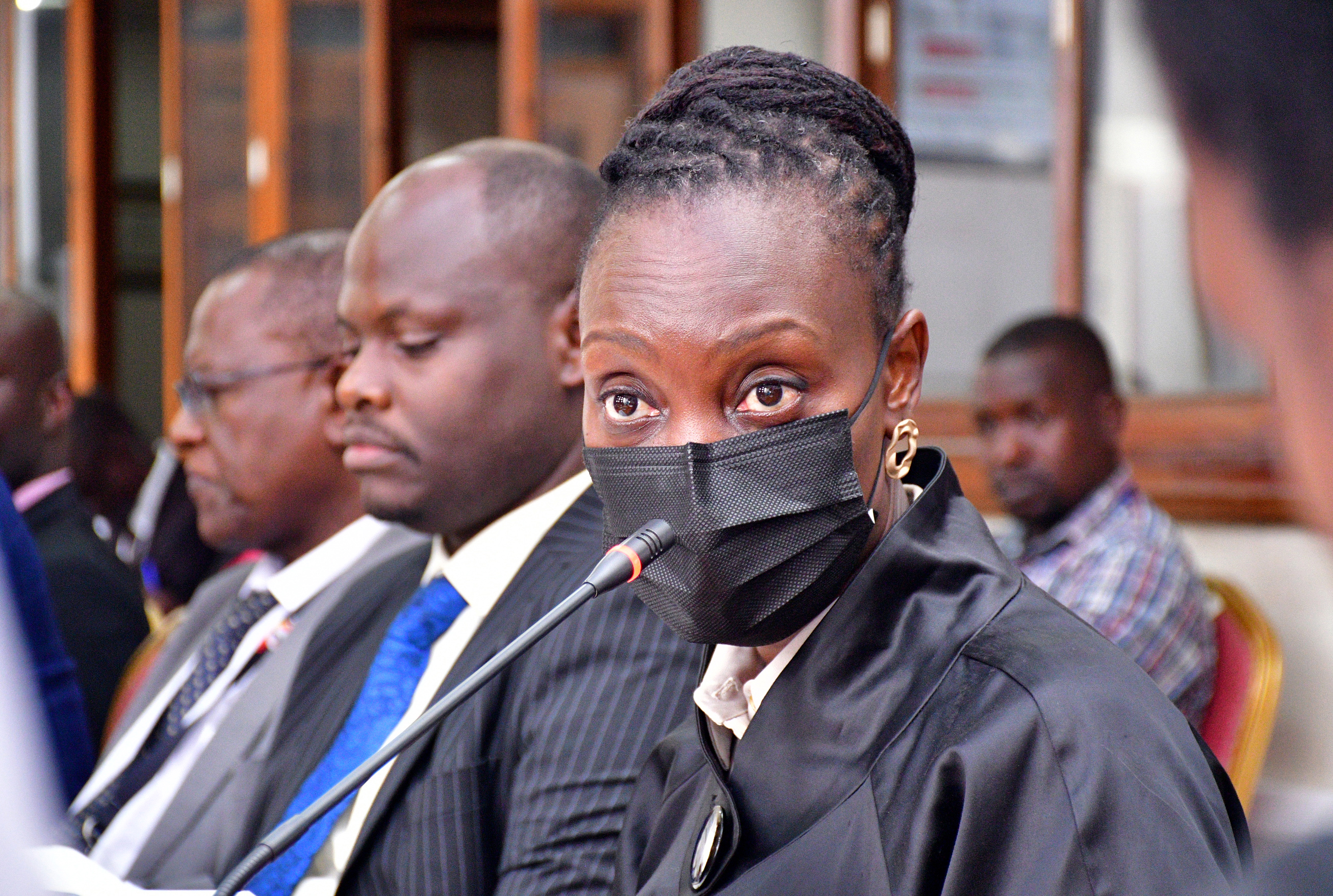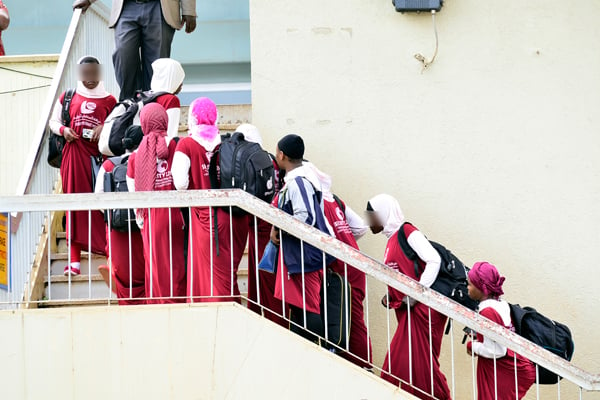Prime
Battle lines drawn as Parliament tackles graft

Uganda Airlines chief executive officer Jennifer Bamuturaki appears before the Committee on Commissions, Statutory Authorities and State Enterprises (Cosase) at Parliament on September 15, 2022. PHOTO/DAVID LUBOWA
What you need to know:
- Last year, Parliament passed 28 Bills and adopted 31 reports between June 7 and December 23.
A section of lawmakers have intimated to Monitor that they will among others push for a revised approach to tackling the persistently high levels of corruption.
“We really need to change a lot. We need to start biting,” MP Allan Atugonza (Bulisa County) said, adding, “We need to revise the strategy [because the current approach] is encouraging corruption. We need to look at ourselves.”
Similarly, another lawmaker, Mr Gerald Ibanda Rwemulikya of Ntoroko County painted a bleak picture, blaming the current state of affairs on “diminishing patriotism in this country.”
“If nothing is done, corrupt people will finish this country [because] people don’t think of the future,” he said.
Sunday Monitor understands that Mr Wilfred Niwagaba—the shadow attorney general—will draft a comprehensive line of proposals.
Ms Joyce Bagala (Mityana Woman MP), the shadow communications minister, declined to divulge details of the proposals, saying there will be a formal communication on the same from the office of the Leader of Opposition in Parliament (LoP).
“We’ll be looking at constitutional reforms for social and electoral reforms,” Ms Bagala said.
Last year, the House—under the leadership of Speaker Anita Among and Deputy Speaker Thomas Tayebwa—passed 28 Bills and adopted 31 reports between June 7 and December 23.
The Committee on Commissions, Statutory Authorities and State Enterprises (Cosase)—led by Mr Joel Ssenyonyi (Nakawa West)—notably exposed the rot in Uganda Railways Corporation (URC), the filth in Uganda Land Commission (ULC) and scandals choking life out of Uganda’s national carrier—Uganda Airlines.
URC, ULC probes
Wide-held opinions noted that the House through the Ssenyonyi-led committee unearthed the rot in URC, leading to the dismissal of its boss—Mr Stanley Ssendegeya—by the Works and Transport minister Gen Katumba Wamala at the behest of President Museveni in mid-October.
The Ssendegeya administration had been, among others, faulted for wasting Shs48 billion by procuring four locomotives from South Africa. Cosase noted that the resale of the said locomotives was nearly impossible thus wasting taxpayers’ money.
Earlier, in August, a Cosase report tabled before the House recommended that the Ombudsman, Ms Olive Beti Kamya, and the Finance minister, Mr Matia Kasaija, be prosecuted for their role in the irregular release of Shs10 billion by the ULC ostensibly to ghost claimants.
The committee’s recommendations also suggested that the deputy Permanent Secretary and Secretary to the Treasury, Mr Patrick Ocailap, be reprimanded for not thoroughly scrutinising the said Shs10 billion supplementary request.
Flying without wings
The Cosase spotlight also illuminated the mismanagement of and losses incurred by Uganda Airlines. Ms Jenifer Bamuturaki, the chief executive officer of Uganda’s flag carrier, found herself caught in the crosshairs. Cases of mismanagement of the national carrier included inflated prices for some items procured, flouted procurement guidelines and travellers being gifted with free tickets at the taxpayers’ expense. These consequently left Uganda Airlines grappling with a Shs500 billion blackhole.
To this day, the findings of the probe have never been formally tabled before the House. Leaks, however, indicate that some of the recommendations include punishments for Uganda Airlines top brass on account of the litany of irregularities unearthed during the probe.
Among cracks whip
On November 17, Speaker Among adjourned proceedings in the House with the demand that the Prime Minister, Ms Robinah Nabbanja, whips her wing—especially ministers—to table action reports detailing on the progress made in regards to the resolutions made or passed by Parliament.
“Since you want to be a people-centred Parliament, you need to be seen to perform. We also have to check our ministers. We need to help the President of Uganda,” Speaker Among said, adding, “We need action reports in this House ... We will have action reports ministry by ministry.”
Consequently, seven ministerial action reports were tabled, with the Justice and Constitutional Affairs ministry—a key entity in the fight against corruption—among the first presenters.
As she received the audit reports from Ms Kamya, Speaker Among ordered that a value for money audit be done around the Atiak Sugar Factory where billions have been ploughed. Ms Among also pushed for more resources to be channelled to the Inspectorate of Government so as to rein in corruption.
The Speaker was dismayed to learn that at least Shs25 million is lost to corruption each day in Uganda. Other findings in a 2021 inaugural study bankrolled by the German government, which found that at least 23 percent of the government’s annual budget is gobbled by corruption, puzzled Ms Kamya.
Ultimately, it was found that a minimum of Shs9.144 trillion is siphoned through several conduits infested in both private and public entities within the country. This mirrored earlier findings by Auditor General John Muwanga whose body of work informed the probe into Uganda Airlines.
Covid cash mess
Mr Muwanga also carried out an audit into the mismanagement of the money doled out when Uganda struggled to contain the pandemic. The forensic study was triggered off in last May after lawmakers tasked the Auditor General’s office to look into allegations of mismanagement of the said Covid-19 money.
Months later, Mr Muwanga confirmed the fears of the lawmakers. It was found that the Ministry of Health, among other, entities “wasted” away monies that had been meant to enable Ugandans weather through the brutal effects of the pandemic. The government officials were faulted for having awarded contracts to the selected firms owned by the same persons to allegedly supply facilities or equipment that was largely not used.
Smelling the coffee
Early last year, Parliament’s Trade committee made an inquiry into the details of the awarding of a controversial deal to the Uganda Vinci Coffee Company Limited (UVCCL) owned by Italian businesswoman, Ms Enrica Pinetti. After a marathon probe, it was recommended that the deal be terminated. On December 29, President Museveni indicated that the Executive will not heed Parliament’s suggestions.
The collective position of the House’s Opposition wing is that it will not relent. Ms Bagala told Monitor this week that they are more than determined to stop the overreach by the Executive.
“They don’t heed because it is their intention. They don’t think that Ugandans deserve better,” she said, adding, “That’s why for us [the Opposition] we think it’s high time we had change and that’s why we press for change. That’s why we are in this struggle.”




